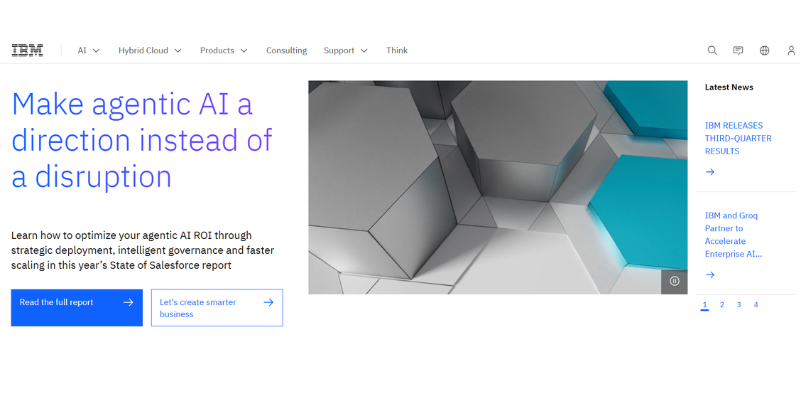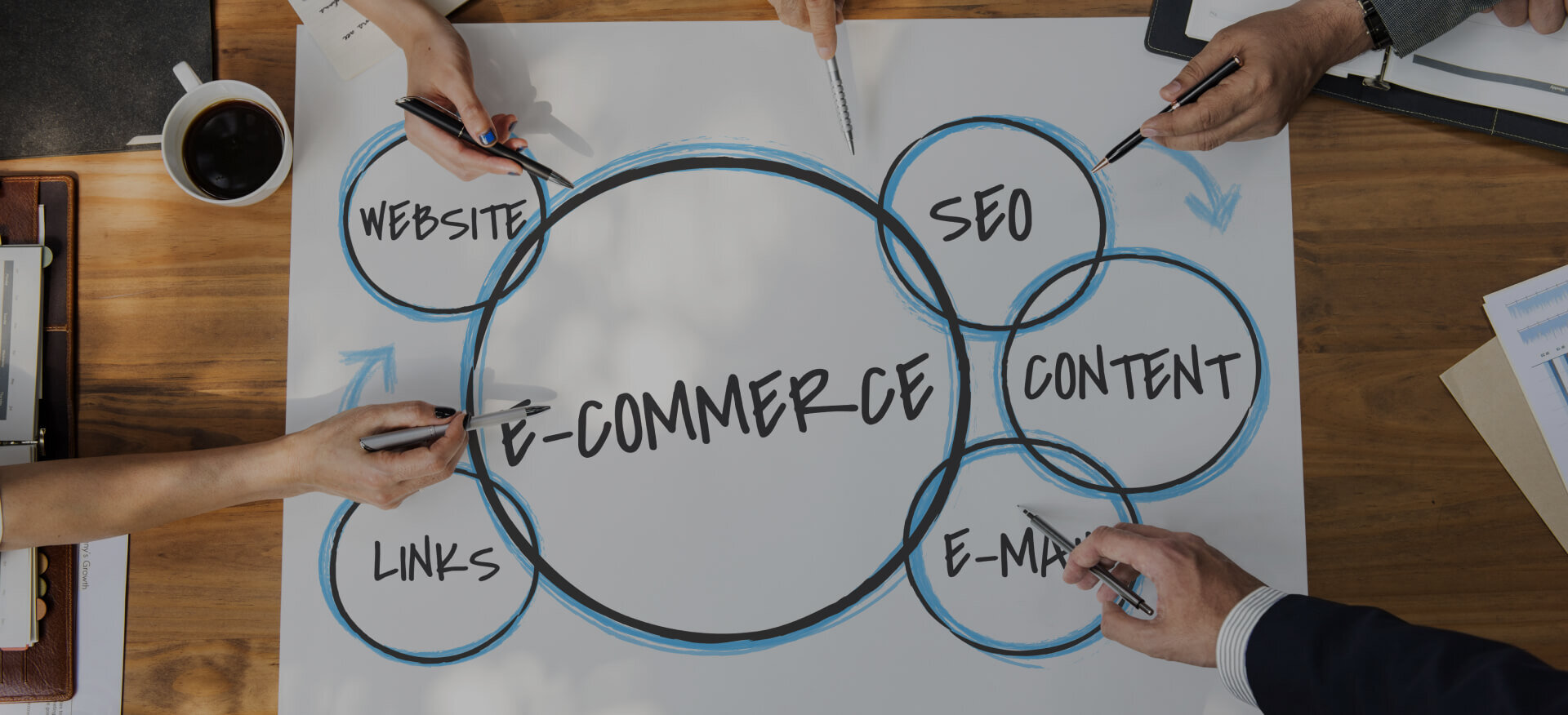So, exactly what is a B2B company?
A B2B (Business-to-Business) company sells products or services directly to other businesses, rather than individual consumers.
Unlike B2C (Business-to-Consumer) companies, which sell to end customers, B2B businesses tailor their offerings to help other businesses run more efficiently, streamline operations, and increase profitability.
B2B transactions often involve larger orders, longer sales cycles, and more complex decision-making processes. Also, it is common in industries like manufacturing, technology, finance, and consulting, where businesses depend on each other to drive growth and innovation.
For example, a software company that provides tools to help other businesses manage their operations is a classic example of a B2B company.
In this blog, we’ll take a closer look at what B2B companies are, their key characteristics, how they operate, and the benefits of B2B transactions. We’ll also highlight some well-known examples across different industries.
What is a B2B Company?
A B2B (Business-to-Business) company is a type of organization that sells products or services to other businesses rather than individual consumers.

In a B2B model, the transactions and interactions occur between two businesses, such as a manufacturer selling raw materials to a retailer or a software company providing services to a corporation. These businesses typically cater to the needs of other companies and work on building long-term relationships, often creating tailored solutions that help their clients improve efficiency, profitability, or operations. To attract the right clients, many B2B companies leverage digital marketing strategies to ensure their offerings reach key decision-makers effectively.
B2B vs B2C (Business-to-Consumer) Models
Here’s a quick comparison between B2B vs B2C models:
|
Aspect |
B2B (Business-to-Business) |
B2C (Business-to-Consumer) |
|
Target Audience |
Other businesses or organizations |
Individual consumers for personal use |
|
Product/Service |
Products/services that support business operations, growth, or success |
Products/services for personal enjoyment or daily needs |
|
Sales Cycle |
Longer and more complex, involving multiple decision-makers |
Shorter and simpler, typically involving a single decision-maker |
|
Transaction Volume |
Larger volumes, often involving bulk purchases |
Smaller volumes, typically individual purchases |
|
Decision Making |
Often involves research, negotiations, and long-term planning |
Usually quicker, often impulsive or based on personal preference |
|
Examples |
Software providers, manufacturers, consultants, wholesalers |
Retail stores, e-commerce platforms, entertainment providers |
|
Sales Process |
Involves building long-term relationships and trust |
Driven by advertising and promotions aimed at individuals |
|
Pricing |
Often negotiable, with bulk discounts or customized pricing |
Fixed prices or discounts for individual buyers |
Explore Our B2B Marketing Services!
How B2B Companies Operate?
B2B (Business-to-Business) companies have a unique way of operating, primarily because they cater to other businesses rather than individual consumers.
Here’s an overview of how B2B companies function:
1. Sales Process
B2B sales processes are typically much longer than B2C because of the larger investments and complexity involved. In B2B, the sales cycle can last anywhere from a few months to even years.
This extended timeline is due to multiple layers of decision-making, negotiations, and approvals. B2B companies focus heavily on building relationships with potential clients, which is essential for closing deals.
Sales teams in B2B companies invest significant time in understanding the client's business needs, providing customized solutions, and ensuring ongoing communication.
2. Decision-Making
Unlike B2C, where decisions are often made by a single consumer, B2B decisions typically involve multiple decision-makers. These can include managers, executives, procurement teams, and other stakeholders within an organization.
B2B purchases are usually more complex and strategic, focusing on ROI (Return on Investment) and the long-term benefits the product or service can offer the business.
This decision-making process is driven by data, cost-effectiveness, and how well the product or service can solve the client’s problems.
3. Pricing & Negotiations
B2B pricing models are often flexible and customized to meet the specific needs of clients. This flexibility is necessary because businesses are buying in larger volumes or seeking long-term contracts that require unique terms.
Prices in B2B transactions can vary depending on factors such as order size, frequency, and the level of customization required.
Additionally, negotiations are a core part of the process, where both parties typically work together to agree on terms that benefit both.
4. Customer Relationships
Building and maintaining long-term relationships is essential for B2B companies. These relationships are typically based on trust, mutual benefit, and consistent service.
B2B businesses often strive to build partnerships with clients rather than simply making one-time sales. Long-term client relationships lead to repeat business, referrals, and continued growth. Additionally, after-sales support is crucial in B2B.
This can include customer service, training, troubleshooting, and updates to ensure that clients remain satisfied and can continue to use the product or service effectively.
5. Marketing & Lead Generation
Marketing strategies for B2B companies are highly targeted and tailored to reach the right decision-makers in specific businesses.
Unlike B2C, where marketing can appeal to a wide audience, B2B marketing focuses on niche markets, industries, or specific companies that would benefit from the product or service.
B2B companies use techniques like content marketing, SEO, email marketing, and LinkedIn outreach to generate leads. Attending industry events, webinars, and conferences also plays a key role in lead generation.
Explore Our Digital Marketing Services!
6. Logistics & Distribution
B2B companies deal with more complex logistics compared to B2C. Since B2B transactions often involve bulk orders, businesses must efficiently manage the distribution of products, whether through warehouses, direct shipping, or even custom supply chains.
Delivery times, order sizes, and specialized shipping requirements must be carefully planned and managed.
Additionally, international B2B transactions require coordination between different countries’ customs and shipping regulations, adding another layer of complexity to the logistics process.
7. Technology & Innovation
To remain competitive, B2B companies continually leverage technology to streamline operations, improve efficiency, and stay ahead in the market.
Technologies like Customer Relationship Management (CRM) systems, Enterprise Resource Planning (ERP) software, and marketing automation tools are often used to manage sales pipelines, track customer interactions, and optimize business processes.
These companies focus on understanding the complexities of their clients' operations and providing value through their products, services, and customer support.
One of the challenges B2B companies face in today’s digital landscape is how to maintain control over the technology they use. For example, as businesses increasingly rely on AI-driven solutions, some companies might wonder how to turn off Google AI features or limit its influence on their operations, especially if they want to preserve certain processes or data privacy.
3 Notable Examples of B2B Companies
B2B companies span various industries, offering solutions that help businesses optimize operations and drive growth.
From CRM software to cloud computing, these companies provide essential tools for organizational success.
Here are some of the best examples of highly successful B2B companies:
1. Salesforce

Salesforce has become a leading B2B company due to its ability to provide powerful and scalable Customer Relationship Management (CRM) solutions.
By helping businesses manage customer interactions, sales pipelines, and marketing campaigns, Salesforce enables companies to streamline their operations and enhance customer service.
The platform's flexibility and user-friendly interface have made it a go-to solution for businesses of all sizes across various industries. Salesforce’s success lies in its constant innovation, offering features like AI-driven insights, automation tools, and seamless integration with other business systems, showcasing the power of B2B Marketing Automation Tools to drive growth.
2. Alibaba

Alibaba’s success as a global B2B marketplace stems from its ability to connect manufacturers, wholesalers, and suppliers with businesses worldwide.
By offering a platform where businesses can source products in bulk, Alibaba facilitates international trade and creates opportunities for both large and small companies to scale their operations.
Its model allows businesses to buy raw materials, finished products, and services from reliable suppliers at competitive prices.
Alibaba’s global reach and diverse range of offerings have made it a vital tool for businesses looking to expand their supply chains and enhance their procurement processes.
3. IBM

IBM’s success in the B2B space is attributed to its focus on providing cutting-edge technology solutions tailored to the needs of large enterprises.
ith offerings in AI, cloud computing, and data analytics, IBM empowers businesses to innovate and optimize their operations. The company’s deep expertise in technology, combined with its robust service offerings, positions IBM as a leader in digital transformation for organizations across various industries.
BM’s solutions not only help businesses enhance operational efficiency but also enable them to leverage advanced technologies to stay ahead of the competition.
5 Common Challenges in B2B Sector
B2B companies face several challenges in their operations, primarily due to the complexity of dealing with business clients rather than individual consumers.
Here are the most common challenges in B2B sector:
- Long Sales Cycles: Extended decision-making processes involving multiple stakeholders.
- Complex Negotiations: Pricing and contract terms that need to be customized for each client.
- Building Long-Term Relationships: Establishing trust and fostering repeat business.
- Staying Technologically Competitive: Continuous investment in innovation to meet client needs.
- Logistics & Supply Chain Issues: Managing bulk orders and ensuring timely deliveries, especially in international trade.
To combat these challenges, many B2B companies are turning to B2B Content Marketing to better engage potential clients with valuable, relevant information, nurturing leads over time.
5 Trends Shaping the Future of B2B Companies
The B2B landscape in 2025 is undergoing a significant transformation, driven by technological advancements, shifting buyer behaviors, and evolving market dynamics.
Here are five key trends shaping the future of B2B companies:
1. AI-Powered Personalization
Artificial Intelligence (AI) is revolutionizing B2B marketing by enabling hyper-personalized experiences. Marketers are leveraging AI to analyze vast amounts of data, allowing them to deliver tailored content and solutions that resonate with individual buyer needs.
This shift towards AI-driven personalization enhances engagement and improves conversion rates. Additionally, email marketing strategies are becoming more refined with AI, offering customized outreach to potential clients.
2. Digital-First and Self-Service Models
With the rise of digital natives in decision-making roles, B2B companies are adopting digital-first strategies. Platforms are increasingly offering self-service options, allowing buyers to research, configure, and purchase products independently.
This approach not only streamlines the buying process but also caters to the preferences of modern B2B buyers
3. Account-Based Marketing (ABM) and Intent Data
Account Based Marketing (ABM) continues to be a dominant strategy, focusing on personalized outreach to high-value accounts. By integrating intent data, companies can identify prospects showing buying signals and tailor their marketing efforts accordingly.
This data-driven approach ensures that marketing resources are allocated efficiently, targeting the most promising leads.
4. Experiential and Community-Centric Marketing
B2B companies are moving beyond traditional digital interactions by hosting experiential events and building communities. These initiatives foster deeper connections with clients and prospects, allowing for hands-on experiences with products and services.
Such engagement strategies are particularly effective in demystifying complex offerings and building trust.
5. Sustainability and Ethical Practices
Modern B2B buyers are increasingly prioritizing sustainability and ethical considerations in their purchasing decisions. Companies that demonstrate a commitment to environmental responsibility and ethical practices are gaining favor in the market.
This trend reflects a broader societal shift towards conscious consumption and corporate accountability.
Conclusion
Now that you have a clearer understanding of what a B2B company is, let's summarize. A B2B company is crucial in global trade and the digital ecosystem by providing essential products and services to other businesses, allowing them to operate efficiently and grow. These companies form the backbone of many industries, enabling the movement of goods, services, and technologies that fuel economic progress worldwide. In today’s digital age, B2B companies are not only facilitating trade but also transforming business operations through digital tools like automation, CRM systems, and online marketplaces. With the right B2B Website Design, businesses can attract more clients and streamline their operations to meet evolving demands.
Companies like Centric, are key players in helping B2B businesses leverage these technologies for operational success. These innovations enhance operational efficiency, foster innovation, and improve customer relationships, making B2B companies key drivers of modern business success. Their ability to adapt to new technologies ensures that B2B companies remain competitive and continue to support both emerging and established industries. That said, B2B companies are vital players in the interconnected global economy, shaping the future of business collaboration and trade.








